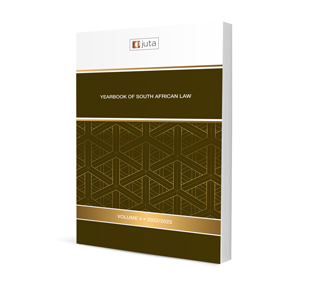Banking and Finance Law

Banking and Finance Law
Author Michel Koekemoer
ISBN: 978 148515 163 0
Affiliations: B Com (PU for CHE) LLB (PU for CHE) LLM (UP) LLD (UP); Associate Professor, Department of Mercantile and Labour Law, University of the Western Cape; Attorney of the High Court of South Africa
Source: Yearbook of South African Law, Volume 4, p. 81 – 132